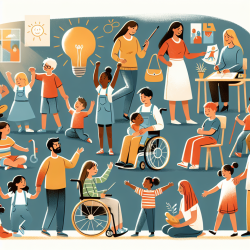Juvenile Idiopathic Arthritis (JIA) is a chronic condition affecting children worldwide. While its physical symptoms are well-documented, the psychological impact on young patients is often overlooked. Recent research titled "Behavioral Problems in Juvenile Idiopathic Arthritis: A Controlled Study to Examine the Risk of Psychopathology in a Chronic Pediatric Disorder" sheds light on this critical aspect. This blog post will explore the study's findings and discuss how practitioners can use this information to improve their support for children with JIA.
The Study at a Glance
The study involved 51 children with JIA and 75 healthy controls, aged 6 to 18 years. Researchers used the Child Behavioral Checklist (CBCL) to assess behavioral problems, revealing that 70% of children with JIA fell into the "borderline clinical" or "clinical" range for internalizing problems, compared to only 18% in the control group. Additionally, children with JIA exhibited significantly higher scores in externalizing behaviors.
Implications for Practitioners
The findings indicate that children with JIA are at a higher risk of both internalizing and externalizing problems. Practitioners can implement several strategies to address these challenges:
- Early Screening: Regular psychological assessments using tools like CBCL can help identify at-risk children early, allowing for timely intervention.
- Holistic Approach: Integrate psychological support into the overall treatment plan for JIA patients. This includes counseling and therapy sessions focused on managing anxiety, depression, and behavioral issues.
- Family Involvement: Educate families about the psychological aspects of JIA and involve them in therapeutic processes to create a supportive home environment.
- Collaborative Care: Encourage collaboration between rheumatologists, psychologists, and educators to provide comprehensive care that addresses both physical and mental health needs.
The Need for Further Research
The study highlights novel findings regarding externalizing, social, and thought problems in children with JIA. These areas warrant further investigation to develop targeted interventions. Practitioners are encouraged to engage in or support research initiatives that explore these dimensions more deeply.
Conclusion
The study underscores the importance of addressing both physical and psychological aspects of JIA in children. By implementing early screening and holistic care strategies, practitioners can significantly improve the quality of life for affected children. For those interested in delving deeper into this research, consider exploring the original paper for more detailed insights.
To read the original research paper, please follow this link: Behavioral Problems in Juvenile Idiopathic Arthritis: A Controlled Study to Examine the Risk of Psychopathology in a Chronic Pediatric Disorder.










